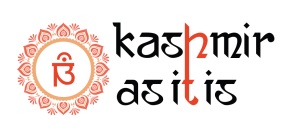NAME – Nund Rishi also known as Sheikh Noor-ud-Din Noorani (“Alamdar-e-Kashmir”)
Born – Noor-ud-Din was born in modern-day village Qaimoh in Kulgam district at Kashmir during (1377 – 1438) AD.

Parents – He was born to “Salar Sanz” and “Sadra”, also called “Sadra Moji” or “Sadra Deddi”. His grandfather “Sheikh Salah-Ud-Din” hailed from Kishtwar.
Childhood – The legend has it that he refused to be breast-fed by his mother after birth and it was Lalleshwari who breastfed him. In teenage years Noor-ud-Din was apprenticed to a couple of traders. He was probably married to Zai Ded who hailed from the village of Dadasara, Tral and had two sons and a daughter with her. She renounced the world after the death of her children and became a hermit.
Noor-ud-Din renounced the worldly life at the age of 30 and retired to live a life of meditation in a cave which is still shown in Qaimoh and is about 10 feet deep.
Contributions – He was a Kashmiri Sufi saint, mystic, poet and Islamic preacher. Nund Reshi was among the founders of the Rishi order, a Sufi tradition of the region. He influenced many spiritual teachers and saints, including Hamza Makhdoom, Resh Mir Sàeb and Shamas Faqir.
Noor-ud-Din spread his teachings or message through poems, commonly known as shruks. His poems have four to six lines each and evolve around religious themes, highlight moral principles and often call for peace. He strived for Hindu–Muslim unity. One of his prominent poems is Ann poshi teli yeli wan poshi, which translates as “Food will thrive only till the woods survive”.
A Kashmiri poetess Lal Ded was his contemporary and had a great impact on his spiritual growth. Some scholars argue that he was her disciple, and associate his poetry with the Bhakti movement, although others disagree.
Noor-ud-Din witnessed several transmissions of Hinduism and Islam in the valley throughout his life, although he was actively involved in philosophical work and in writing Kashmiri poems. In his verses, he recalled some events, including arrival of Mir Sayyid Ali Hamadani to Kashmir. Noor-ud-Din is also credited with translating the Quran into Kashmiri language.
During his last days, he survived by drinking a cup of milk every day, and later, he used to survive by drinking water. Noor-ud-Din died in 1438 at the approximate age of 63. Sultan Zain-ul-Abidin commissioned a tomb for his body at Charari Sharief.
Noor-ud-Din’s sayings and verses are preserved in Kashmir region, including in a museum built at Kashmir University. The shruks also describe the life of the saint. They were translated into the Persian language by Baba Nasib-ud-din Ghazi two centuries after his death.
References:






